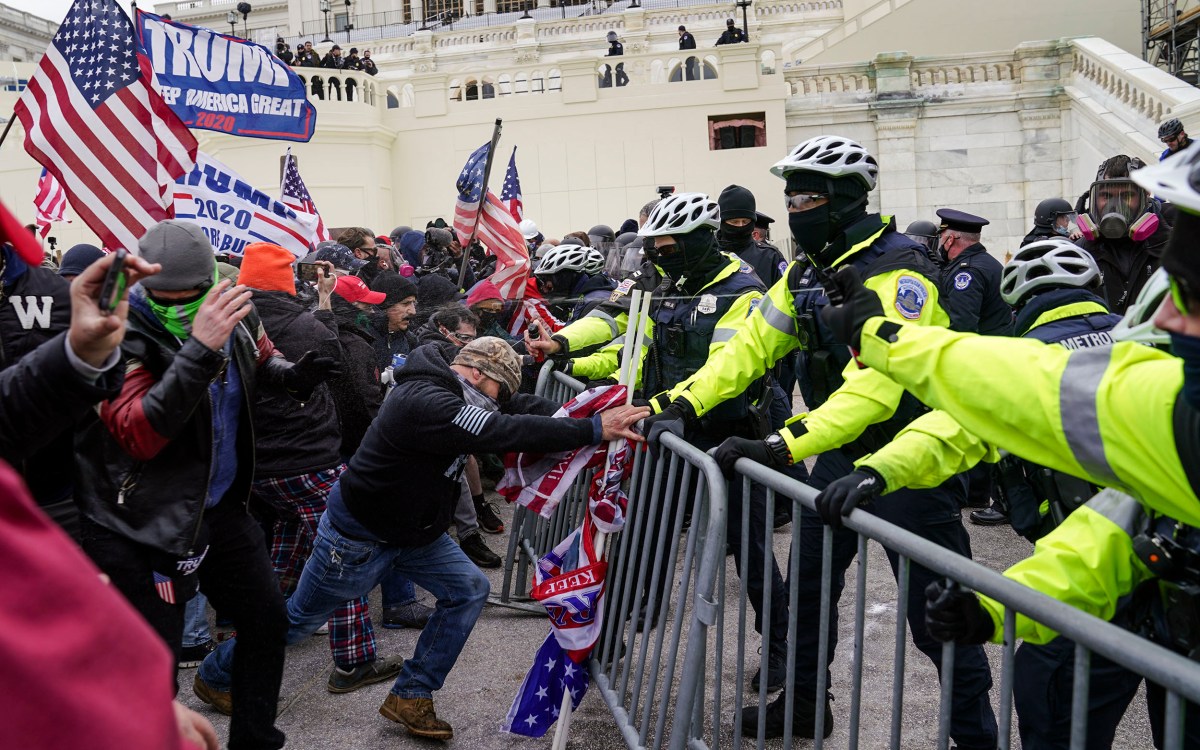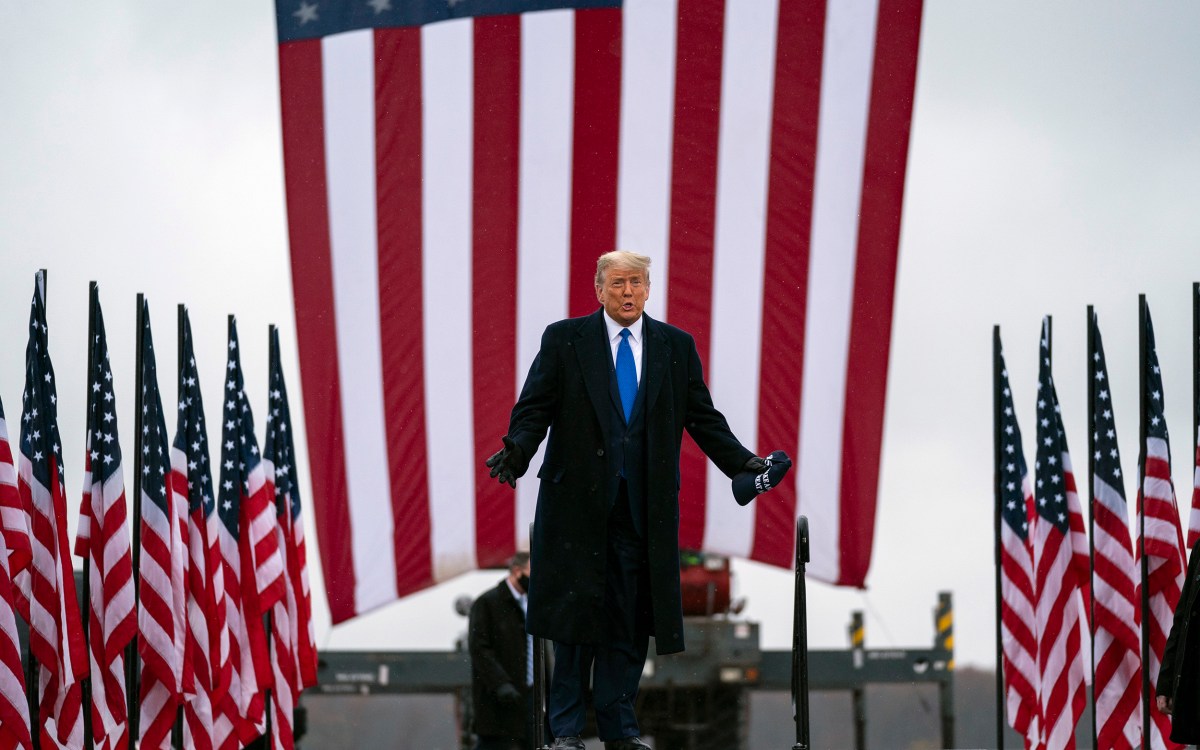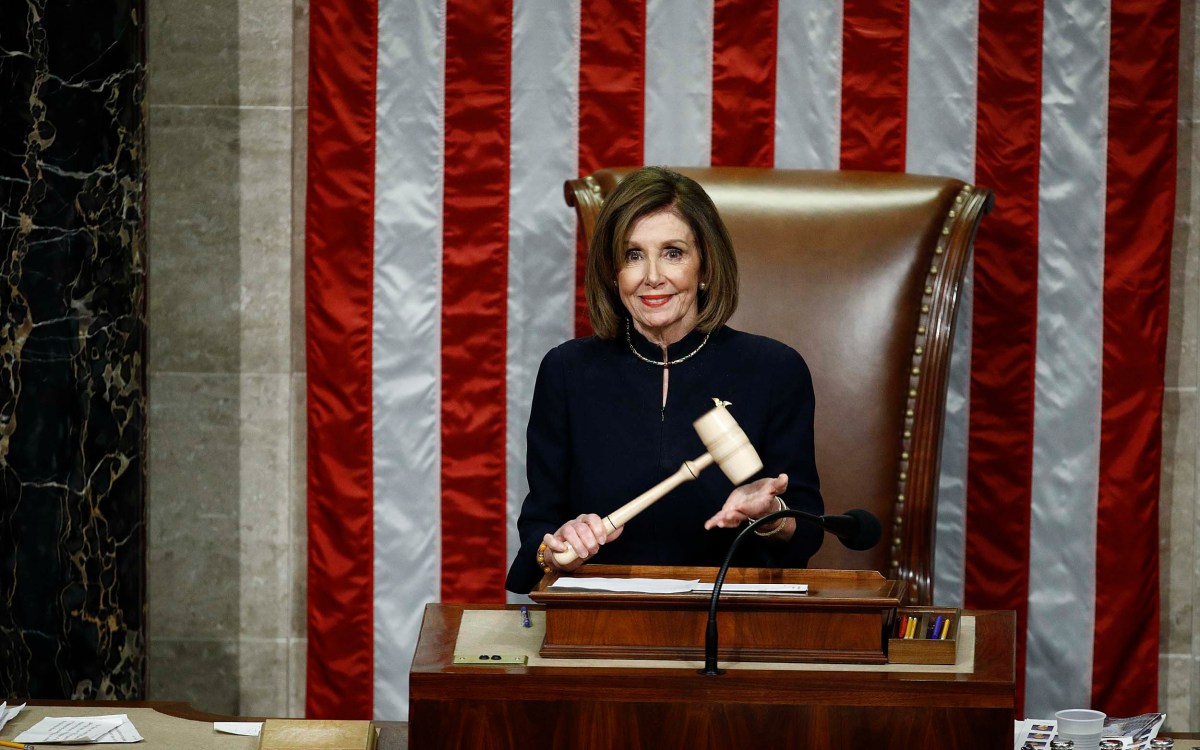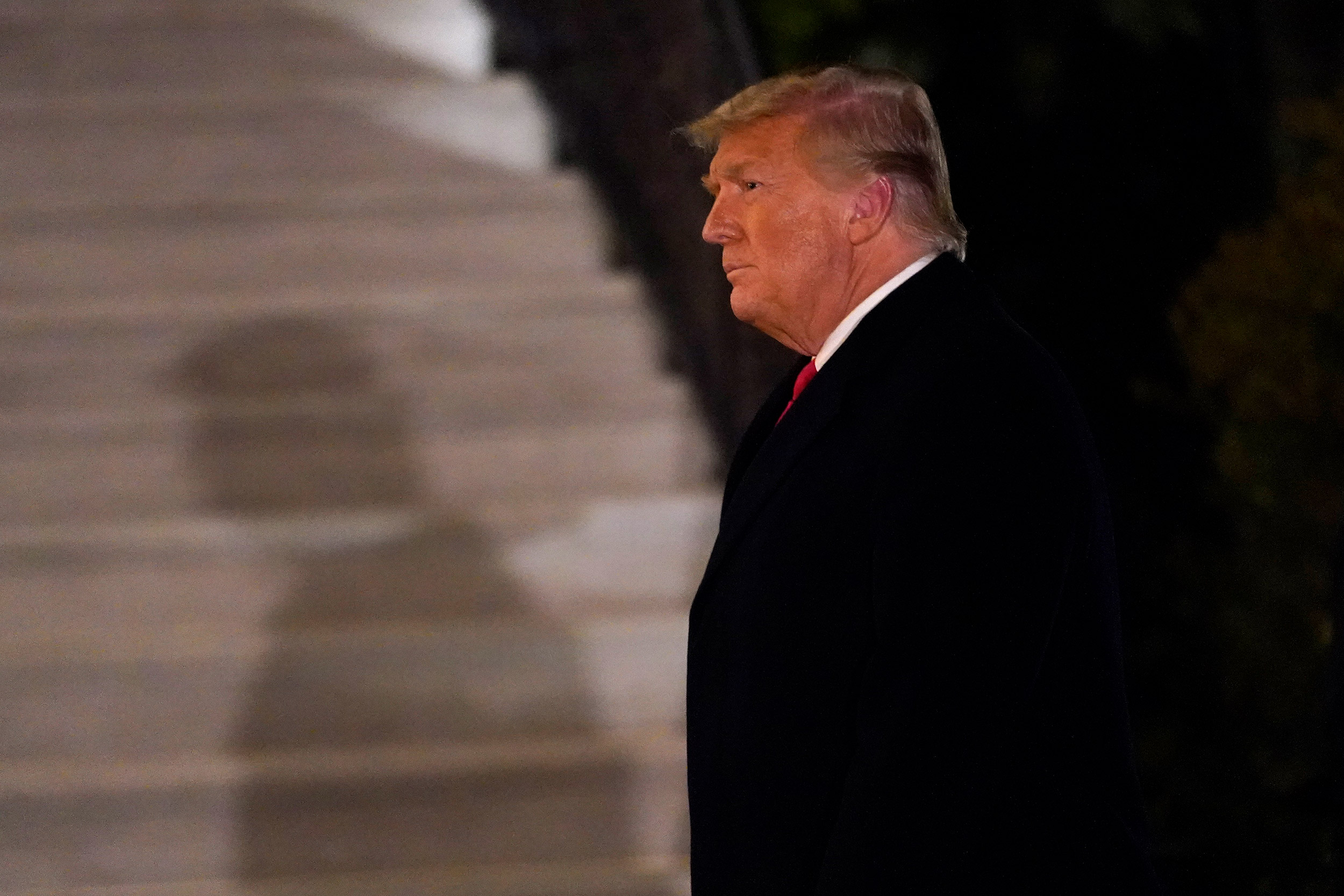
President Donald Trump arrives on the South Lawn of the White House after returning from Texas on Tuesday.
AP Photo/Gerald Herbert
Where are we now after a second impeachment?
Historians and political scientists say still unclear, but more turmoil in near term seems certain
The U.S. House of Representatives made history Wednesday by impeaching a president for a second time, voting to charge Donald J. Trump with inciting the deadly Jan. 6 attack on the Capitol with false claims that the November election was fraudulently handed to President-elected Joseph R. Biden Jr.
Some Harvard historians and political scientists say American democracy could very well be at an inflection point as the events of the last week continue to unravel. But all agree that what the future holds in the days leading up to Biden’s inauguration next week, beyond the likelihood of more pro-Trump protests by his supporters and partisan hostilities in Congress, remains unclear.
“American democracy has had a number of inflection points — the founding, the Civil War and Reconstruction, women’s suffrage, the New Deal’s promise of social citizenship, and the Civil Rights Movement being perhaps the most important,” said Kenneth Mack, Lawrence D. Biele Professor of Law at Harvard Law School and affiliate professor of history.
“By definition, it’s hard to know if something is an inflection point without some historical distance, but after seeing an American president help incite a mob to violently attack Congress in order to keep himself in power illegitimately, one must wonder” if this is another, he said. “Whether it is will depend on the actions of many people in the coming months and years.”
The nation is “likely” at an inflection point, but which direction the change is headed is not yet known, said Alex Keyssar, Matthew W. Stirling Jr. Professor of History and Social Policy at Harvard Kennedy School (HKS). “These events could lead to a reinvigoration of democratic norms, a backing off from hostile partisan rhetoric, a greater respect for institutions. Or this could be the beginning (although not really the beginning) of a prolonged period of acute recriminations and hostility.”
Kenneth Mack says “seeing an American president help incite a mob to violently attack Congress in order to keep himself in power illegitimately“ may mark another inflection point in U.S. history.
Photo by Lorin Granger
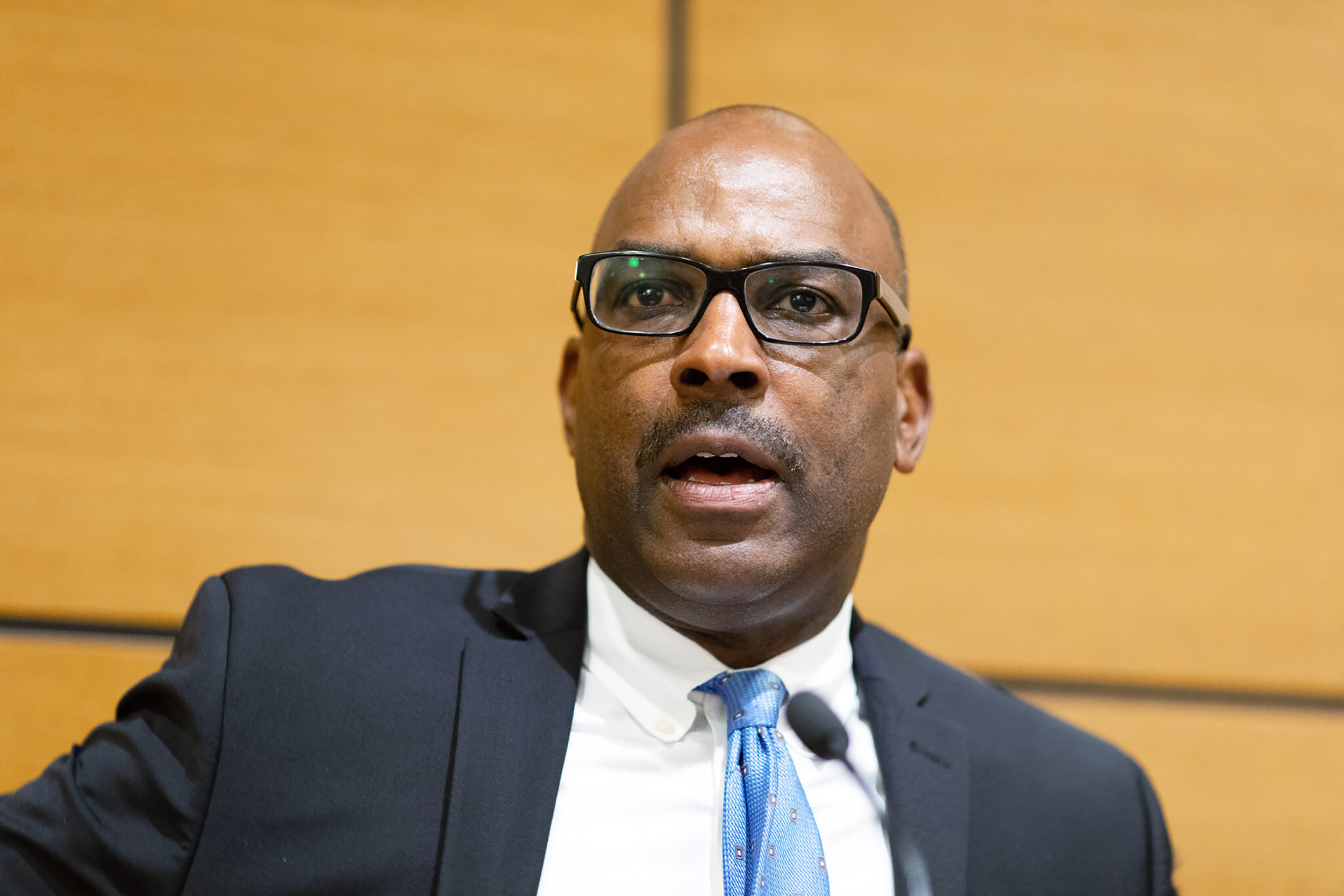
The 232–197 vote ran largely along party lines, with 10 Republicans notably siding with the Democrats this time. No GOP members broke ranks after Trump’s 2019 impeachment, which charged him with abuse of power for trying to pressure the Ukrainian president to open a criminal probe into Biden and his son and obstructing a congressional inquiry into the matter. Trump was acquitted in the Senate.
Yesterday’s Article of Impeachment calls for Trump’s immediate removal from office and seeks to disqualify him from holding “any office of honor, trust or profit” again. Trump, whose term ends Jan. 20, must be convicted by a two-thirds vote of the Senate, currently not scheduled to reconvene until Jan. 19, in order to be removed.
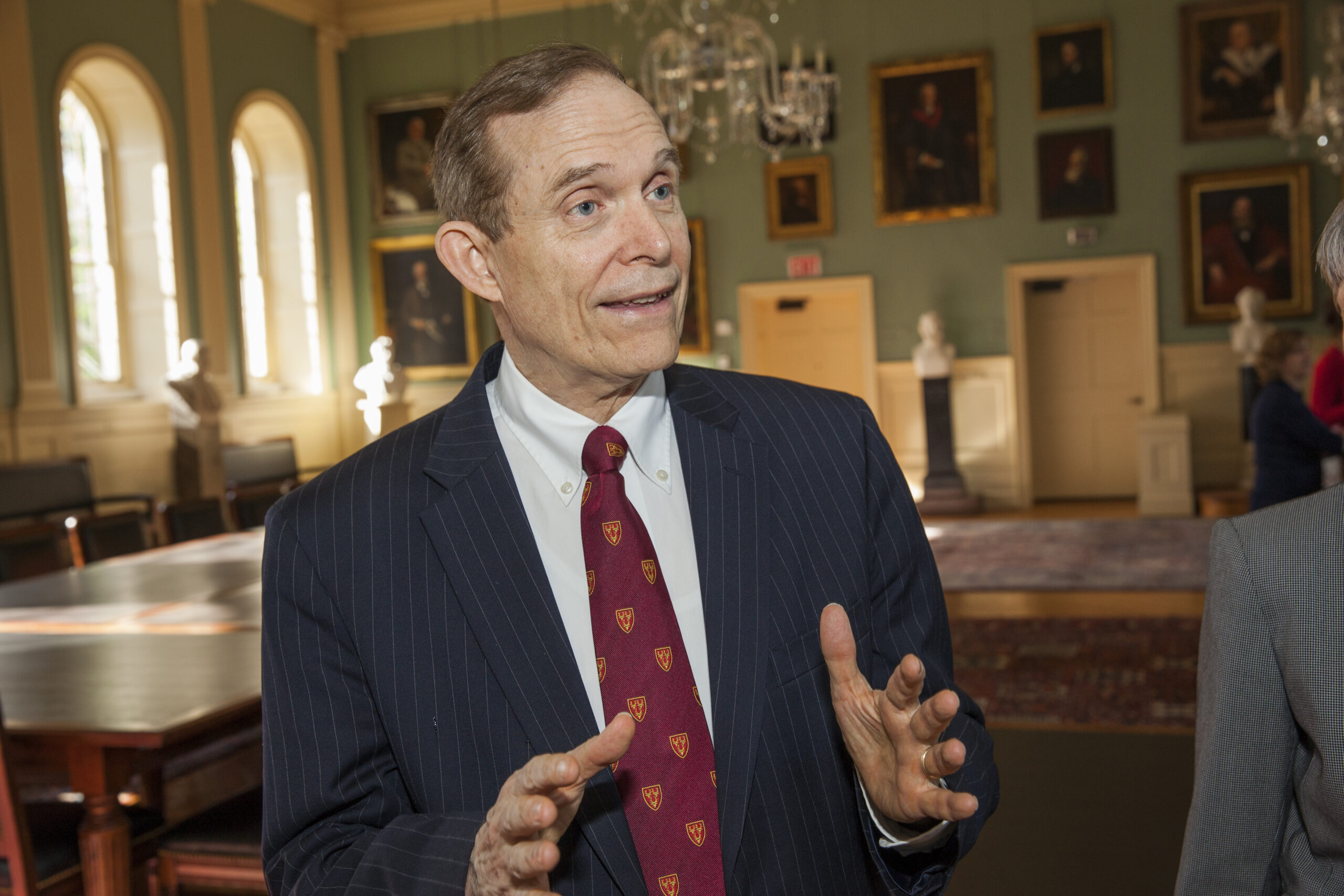

Roger Porter (left) describes President Trump’s final days as “deeply troubling.” Fredrik Logevall says Trump’s presidency “will go down as a colossal failure.”
Photos by Jon Chase/Harvard file and Martha Stewart
History’s assessment of the Trump presidency, whether Trump is removed or not, will almost certainly be harsh, especially given the gravity of last week’s events, analysts say.
“One measure of people and of presidents is their entries and exits. Are they graceful or troubled, promising or disturbing?” said Roger B. Porter, M.A./Ph.D. ’78, IBM Professor of Business and Government at HKS, who teaches a course on the American presidency. “President Trump’s final days in office are deeply troubling in many ways. … Historians and political scientists are unlikely to ignore the events since [the] Nov. 3 [election] in their assessments of his presidency.”
“I anticipate his presidency will go down as a colossal failure,” said Fredrik Logevall, Laurence D. Belfer Professor of International Affairs at HKS and a professor of history in the Faculty of Arts and Sciences. “Perhaps Andrew Johnson — whose term, incidentally, ended much like the current one is ending — could challenge him for the title of worst president in U.S. history, but I don’t see anyone else.”
Though it’s hard to be certain in the moment, given the unprecedented nature of Trump’s involvement in the assault on Congress, Logevall suspects that decades from now, most historians will see the second impeachment “as wholly justified, whatever the outcome of a Senate trial.”
“Trump, they will say, had to be held accountable for inciting an insurrection against the American government. And they will say others, too, must share responsibility, namely the Republican lawmakers who have been Trump’s enablers all along, who didn’t just tolerate his assaults on the nation’s democratic norms and institutions, but cheered him on,” he said.
Trump’s steadfast popularity with Republican voters, which grew during the 2020 election, complicates the political landscape. For months, he has hinted that he may launch his 2024 campaign next week if his legal and extra-legal efforts to overturn the 2020 election were unsuccessful.
With Biden set to be sworn in Tuesday, Trump’s desire to stay in the spotlight sets up the possibility that he’ll try to run a shadow presidency, noisily second-guessing Biden and privately using his influence with Republican lawmakers who remain loyal to him to torpedo the Democrats’ legislative agenda.
There have been instances of bad blood between outgoing and incoming administrations before, famously in the cases of John Adams and Thomas Jefferson, as well as Herbert Hoover and Franklin Delano Roosevelt. In recent decades, however, there’s been an informal norm that ex-presidents refrain from public criticism of their successors out of respect for the office and the will of the voters.
“They were told that they were patriots … fighting for liberty and truth with authoritative leaders to guide them.” said Jennifer L. Hochschild.
Photo by Brooks Canaday/file

“Something tells me that Trump, who lacks any sense of history, any respect for our system’s norms, will not be deterred by this precedent. The question is whether he’ll find much of an audience for his attacks,” said Logevall.
Repelled by the president’s role whipping up and cheering on his supporters for the siege that left five dead, a growing number of major corporations and lenders have severed ties with Trump and his real estate firm and halted donations to his supporters in Congress. Even some key Republicans, including Senate Majority Leader Mitch McConnell of Kentucky and Rep. Liz Cheney of Wyoming, the No. 3 House Republican, either have abandoned Trump or appear to be ready to do so, potentially imperiling his political future altogether.
How effective Trump’s efforts to run a shadow presidency will be depends almost entirely on whether he retains his one true superpower: inspiring fealty in some 74 million followers. As the FBI and federal prosecutors uncover more details about the attack on the U.S. Capitol and arrest mounting numbers of suspected rioters, charging some with sedition, some Trump supporters have started to peel away.
“They were told that they were patriots, American heroes, following in the footsteps of George Washington, fighting for liberty and truth with authoritative leaders to guide them. Then they find out that it was all hollow and evil,” said Jennifer L. Hochschild, H.L. Jayne Professor of Government at Harvard, who studies misinformation and right-wing populist movements around the world. “Some are realizing that this insurrection, if not their previous years of Trump support, was wrong — both morally and factually.”
With core elements of Trump’s base, including those in the military, the FBI, and the business community, now dumping him (though Hochschild notes that few religious leaders, especially Evangelical ministers, have spoken up: “That is shocking to me,” she says), that momentum may encourage more and more Trump supporters to also step away.
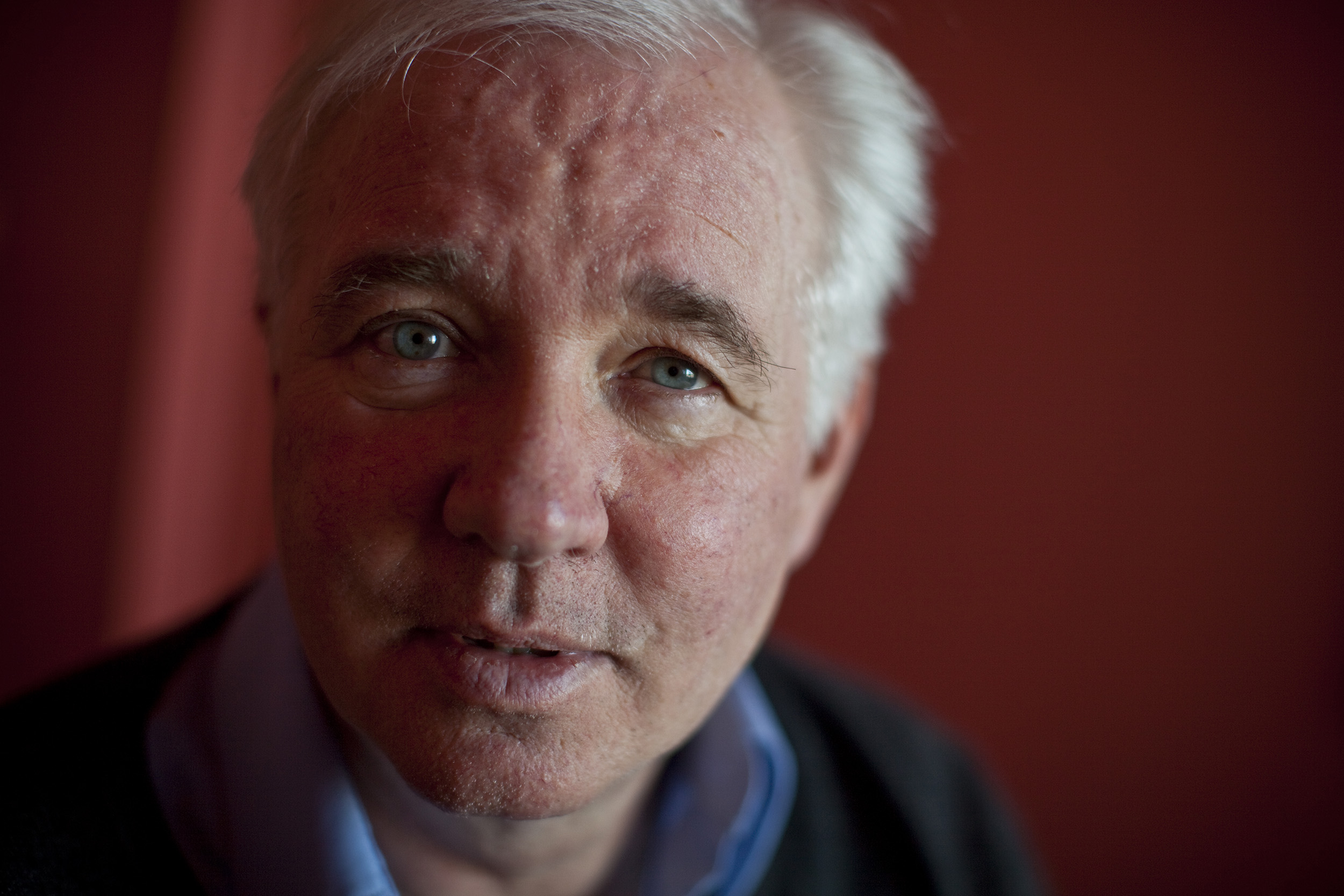
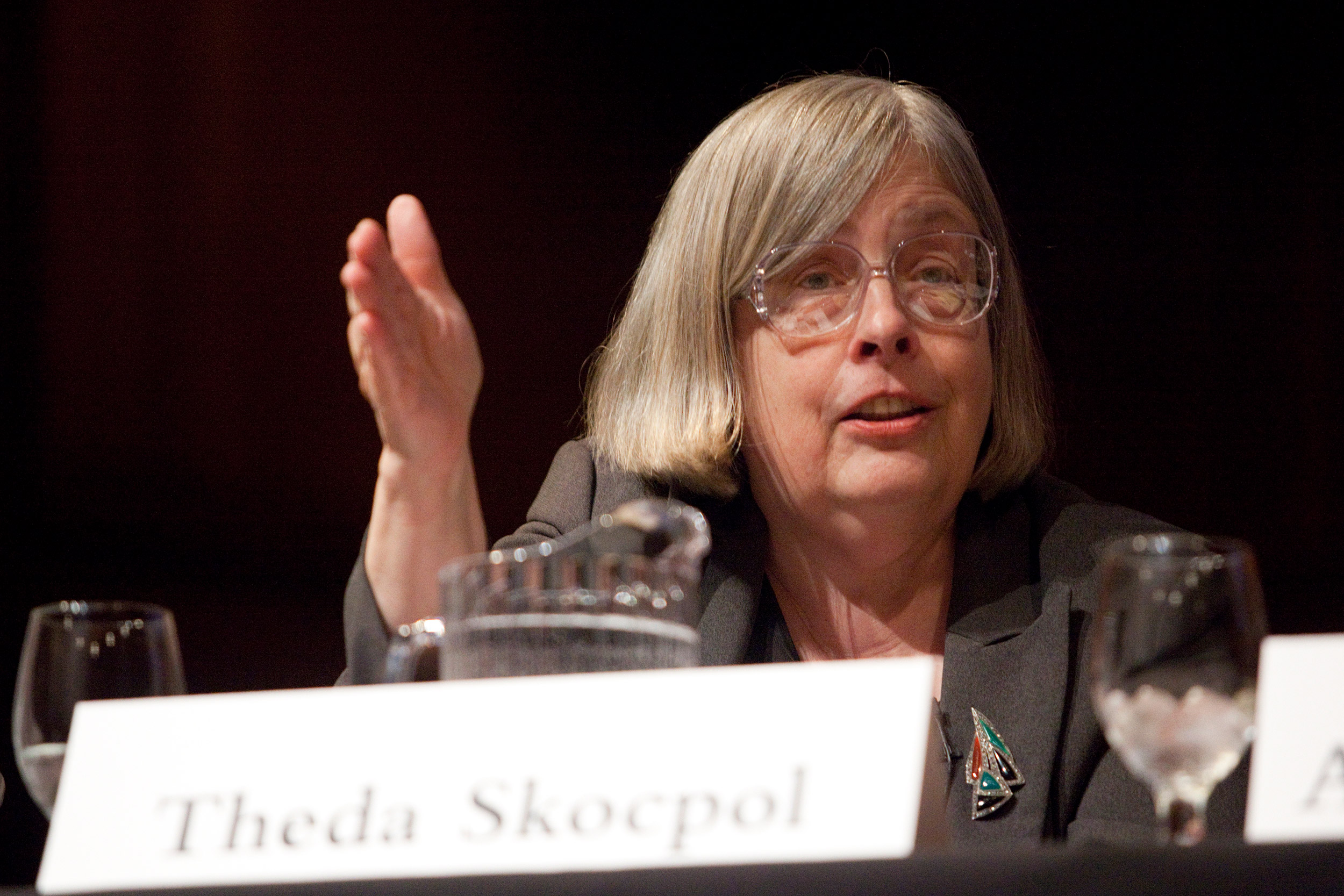
The nation is “likely” at an inflection point, but which direction the change is headed is not yet known, says Alex Keyssar (left). Theda Skocpol foresees “political violence, mostly from the Right, for months to come.”
Harvard file photos
“If they join in a more or less unified declaration that ‘You are not a bad person for having supported Trump in the past, but now he has gone over the edge, and we must jettison him/them because they are hurting our beloved country,’ that could ease people’s ability to reject radicalized Republicanism without having to have a conversion experience (which few have),” she said.
How the country will fare with a sidelined ex-president who’s trying to retake the office that he has convinced his supporters was stolen from him is genuinely “uncharted waters,” said Logevall. “But my guess is his efforts may have rather less effect than we’re imagining and fearing. His heart may not be in it, for one thing; even if it is, we may find that he’s a spent force, that the sense of invincibility he used to such effect for four years has been forever shattered.”
Where our politics is going in the coming months will depend on whether Trump can still run for office and is allowed back on social media, especially Twitter, which cut him off for making false and incendiary claims, says Theda Skocpol, Ph.D. ’75, Victor S. Thomas Professor of Government and Sociology, who has extensively studied political views in “Red State” America.
If not, and the Biden administration successfully handles the dual COVID public health and economic crises, then those Republicans who want to back away from Trump’s “authoritarianism will make headway,” she said. But, “If Trump remains a strong public voice, GOP radicalism may prevail and eventually destroy our competitive electoral system. Either way, there will be political violence, mostly from the Right, for months to come.”



